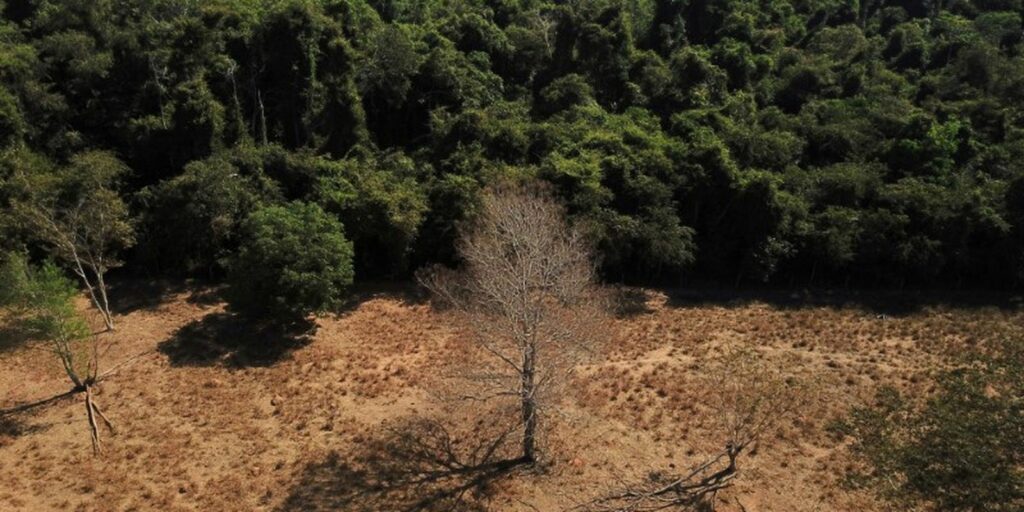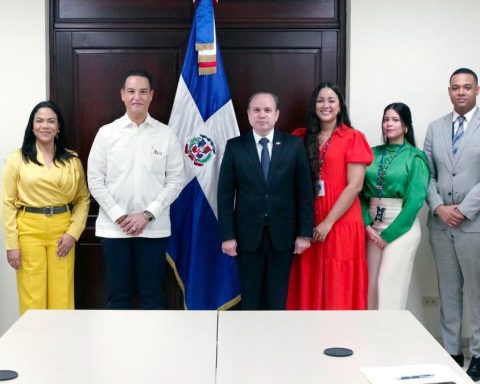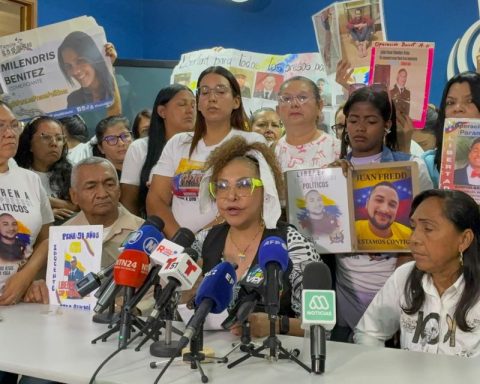March 21, 2023, 4:00 AM
March 21, 2023, 4:00 AM
Bolivia’s diesel imports in 2022 exceeded by 31% the volumes necessary to cover the demand for this fuel in the domestic market. A former minister and an analyst indicate that the surplus may hide acts of corruption, while YPFB attributes the difference to volumes declared, but not yet admitted.
According to Yacimientos Petrolíferos Fiscales Bolivianos (YPFB), the country’s annual diesel production is 414,000 cubic meters, while deliveries to the domestic market are 2.28 million cubic meters (MMm/3). This represents a deficit of 1.87 MMm/3, which is covered by imports.
However, preliminary figures from the National Institute of Statistics (INE) processed by the Bolivian Institute of Foreign Trade (IBCE) indicate that 2.46 MMm/3 (2,091 million kilos) were imported, 31% more than what was consumed in the country.
In this regard, YPFB Corporación informed EL DEBER that the consolidated import was not 2.46, but 1.85 MMm/3. He explained that, prior to the start of importing a batch of diesel, he submits a Single Import Declaration (DUI) to the National Customs of Bolivia (ANB) in which the initial volume of fuel that will enter the country for a period of time is established. definite. This information is sent to the INE to prepare the statistical reports.
However, due to administrative problems in the ports, due to climatic factors that prevent ships from arriving on time or due to blockages in other countries, among other reasons, “there are cases” in which the total amount anticipated in the shipment is not imported. the declaration.
“Therefore, once the import is finished, the DUI is rectified with the corresponding effective volume. We understand that this may be the reason for the difference consulted, even more so when the INE details that they are preliminary data,” Yacimientos said.
This “great difference” between supply and demand “draws attention, because it can give rise to multiple irregularities,” said Hugo del Granado, former vice president of the state oil company.
“What needs to be investigated the most is whether these (imported) volumes have entered Bolivia through customs controls, because it would not be the first time that it is said that something that never entered the country has been imported, but rather that it was directly imported. diverted outside the borders or disappeared upon entering,” he said.
Last Wednesday, Teresa Morales, former Minister of Productive Development and Plural Economy, denounced that in 2022 Bolivia imported 1,154 million liters of diesel and gasoline more than what is used in the national market.
“Where are those surplus volumes or the silver that was used to import them?” Morales questioned, noting that in Bolivia there is no storage capacity for that amount.
A report from Yacimientos details that the maximum storage capacity for diesel is 126 million liters and 112 million liters for inputs and additives used in the gasoline that is marketed.
The Minister of Hydrocarbons and Energies, Franklin Molina, and the president of YPFB, must answer this question, stressed Morales, a minister during the government of Evo Morales.
Hours later, in statements to ATB, Armin Dorgathen, head of YPFB, described as “absurd speculation” and “unfounded (…) everything that is being said about the issue of fuels.”
The executive insisted that one of the priorities of the state oil company is to work on a new logistics for the importation of fuels, “that allows to improve” these operations and “reduce import costs.”
In response to the questionnaire sent by this means, YPFB maintained that fuel supply in Bolivia “is an activity that is constantly regulated, programmed, authorized and supervised by different instances, backed by certifications and resolutions issued month by month, by the different actors involved ( public and private). Therefore, for YPFB the complaint by Teresa Morales “lacks foundation, common sense and,furthermore, with incorrect data”.
“If the supply that exists in the market is well above the demand, obviously there is some irregularity involved. That cannot be regulated by storage capacity,” Del Granado asserted in turn.
External purchases of diesel and gasoline have been under scrutiny in recent weeks because they reached historical data of $4,257 million in 2022, of which 69% are diesel; while gas exports totaled $2,972 million, according to a preliminary report from the INE.
The Government indicated that the subsidy climbed to $1,731 million and that part of that amount is covered by net international reserves (NIR), an operation that further weakens these assets and has an effect on the availability of dollars in the domestic market. , according to analysts.
This year “there will be a moderation in the prices of hydrocarbons and that will allow relief” for the country’s coffers, Economy Minister Marcelo Montenegro told Unitel.
YPFB reported that the commercial programming of fuels is defined in the Production and Demand Committee (Prode), of which the state oil company, the Ministry of Hydrocarbons and the National Hydrocarbons Agency (ANH) are part. In the meetings of this Committee, national production and demand are identified, and based on that difference, the volume that needs to be imported is defined, an operation that is authorized by the regulatory entity.
This medium requested information from the ANH on the difference between the supply and demand of diesel in 2022, but did not receive a response until the closing of this edition.
Last year, the import value of diesel increased by 96.2%, from $us 1,500 to 2,944 million: and that of gasoline by 111%, from $us 622 to 1,313 million. For its part, the volume of gasoline imports increased by 41% and diesel imports by 3.7%, according to preliminary data from the INE prepared by the IBCE.
“What was the growth of the Bolivian economy to justify this increase in consumption? In reality, the natural growth average in Bolivia is 3.7 to 4% per year,” said a source close to the distribution chain who preferred to remain anonymous.
Morales also remarked that the growth of the vehicle fleet, of no more than 10% (including undocumented vehicles), is not related to the amount of special gasoline that was purchased for the national market.
According to the ex-minister, the answer to why more than what the market needs was imported cannot be smuggling, since it would require 106 tankers per day -throughout 2022- to remove those 1,154 million liters of fuel surplus.
“This difference in volumes cannot be attributed to smuggling, because it is very large,” agreed Del Granado.
While the Fitch Ratings report indicates that Bolivia’s external position “has drastically deteriorated in the last decade as a result of expansive policies and the drop in national hydrocarbon production, which has turned the country into a net importer of energy, by reducing exports and increasing import needs”.
“In situations of high volatility, high demand, high supply, such high prices, everything has to be subject to suspicion, if it moves outside of acceptable margins,” Del Granado said.
“The import of fuels is a very complicated, tangled issue, generally not very transparent, especially when we live in a market that is volatile due to multiple factors, not only in terms of prices, but also in terms of availability of security of supply and of the conditions that suppliers set to ensure that they increase their business and profits”, he concluded.

















